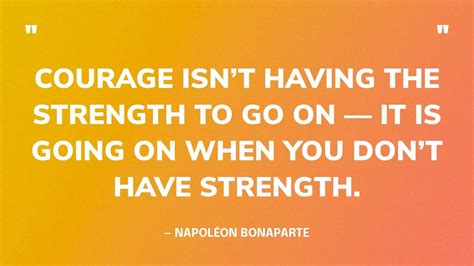The Foundation of Strong Relationships: Communication and Conflict Resolution
Effective communication and constructive conflict resolution are not just desirable traits in a relationship; they are the bedrock upon which lasting connections are built. For men, navigating these aspects can sometimes present unique challenges, often influenced by societal norms or personal habits. However, mastering these skills is entirely within reach and can profoundly transform relationship dynamics, leading to deeper understanding, increased intimacy, and lasting partnership.
This article will explore actionable strategies designed specifically for men to improve how they communicate and resolve disagreements, fostering a more harmonious and resilient relationship.

Understanding Communication Barriers and Building Awareness
Before implementing new strategies, it’s crucial to understand common communication pitfalls. Men might sometimes be socialized to be less expressive of emotions, or to approach problems with a solution-oriented mindset that bypasses deeper emotional connection. Recognizing these tendencies is the first step towards change.
1. Practice Active Listening
Active listening means truly focusing on your partner’s words, tone, and body language without interrupting or formulating your response. It involves:
- Giving undivided attention: Put down your phone, turn off the TV, and make eye contact.
- Reflecting back: Paraphrase what you’ve heard to confirm understanding (e.g., “So, what I hear you saying is…”).
- Asking clarifying questions: Seek to understand deeply, rather than making assumptions (e.g., “Can you tell me more about how that made you feel?”).
- Validating feelings: Even if you don’t agree with the perspective, acknowledge your partner’s emotions (e.g., “I can see why you feel frustrated by that.”).

2. Express Emotions Effectively with “I” Statements
Rather than blaming or accusing, which often puts your partner on the defensive, use “I” statements to express your feelings and needs clearly and non-confrontationally. This takes ownership of your emotions.
- Instead of: “You always ignore me when I’m talking.”
- Try: “I feel unheard when I’m trying to share something important, and I need you to listen for a few minutes.”
- Instead of: “You never help around the house.”
- Try: “I feel overwhelmed by the housework, and I would appreciate it if we could tackle some tasks together.”
3. Pay Attention to Non-Verbal Cues
Communication is more than just words. Your body language, facial expressions, and tone of voice convey powerful messages. Ensure your non-verbal cues align with your spoken words to avoid mixed messages.
- Maintain open body language (uncrossed arms).
- Use appropriate eye contact to show engagement.
- Be mindful of your tone – a calm, even tone is more conducive to productive discussion.

Strategies for Constructive Conflict Resolution
Conflict is inevitable in any close relationship. The key isn’t to avoid it, but to manage it in a way that strengthens the bond rather than erodes it.
1. Choose the Right Time and Place
Avoid trying to resolve complex issues when you’re both stressed, tired, or in a public setting. Find a private time when you can both give the conversation your full attention without distractions.
2. Approach Conflict as a Team Against the Problem
Shift your mindset from “me vs. you” to “us vs. the problem.” Frame the issue as something you both need to work together to solve. This fosters collaboration rather than adversarial thinking.
3. Learn to Take a Break (Timeout)
When discussions become too heated or you feel overwhelmed, it’s okay – and often beneficial – to take a brief break. Agree on a signal to pause the conversation and commit to revisiting it within a specified timeframe (e.g., “I’m feeling really agitated right now. Can we take 20 minutes to cool down and then come back to this?”).

4. Focus on the Issue, Not the Person
Attack the problem, not your partner. Avoid personal insults, bringing up past grievances unrelated to the current issue, or making generalizations (e.g., “You always…” or “You never…”). Stick to the specific behavior or situation that needs to be addressed.
5. Seek Understanding, Not Just Agreement
Your goal in a conflict isn’t necessarily to “win” or even to always agree, but to understand your partner’s perspective and to feel understood yourself. Empathy is crucial here. Try to put yourself in their shoes and understand the emotional impact of the situation on them.
6. Embrace Compromise and Problem-Solving
Relationships thrive on give-and-take. Be willing to compromise and actively participate in finding solutions that work for both of you. Brainstorm options together and be open to outcomes that might not be your initial preference but serve the relationship’s best interest.
Building Emotional Intelligence
At the heart of both effective communication and conflict resolution is emotional intelligence – the ability to understand and manage your own emotions, and to recognize and influence the emotions of others. For men, cultivating emotional intelligence involves:
- Self-awareness: Identifying your own feelings, triggers, and reactions.
- Self-regulation: Managing impulsive behaviors and emotions.
- Empathy: Understanding and sharing the feelings of your partner.

Conclusion
Improving communication and conflict resolution skills is an ongoing journey, not a destination. For men, consciously adopting these strategies can lead to profound improvements in relationship satisfaction, intimacy, and overall happiness. By actively listening, expressing emotions constructively, approaching conflict collaboratively, and building emotional intelligence, you can transform challenges into opportunities for growth and create a stronger, more resilient bond with your partner.
Remember, consistent effort and a willingness to learn are the most powerful tools in your relationship toolkit.



